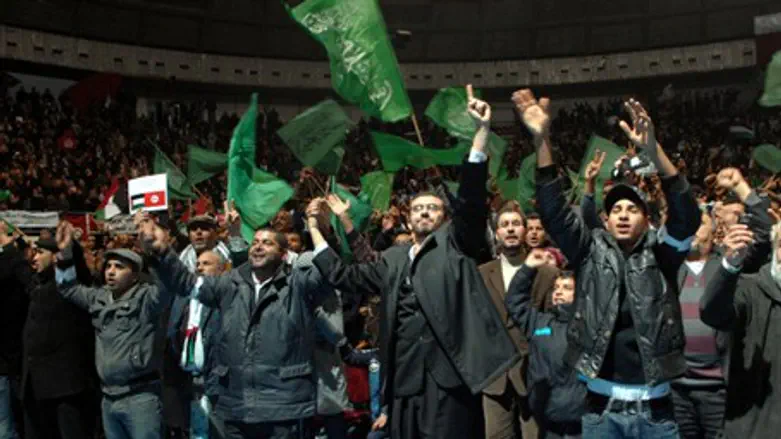
Tunisia’s President Moncef Marzouki ruled out on Thursday the risk of Tunisia's elected authorities being deposed, after Egypt's army ousted President Mohammed Morsi, AFP reported.
At the same time, the report said, Marzouki stressed the need to "pay attention" to popular demands.
"I don't think (there is a risk of contagion) because here the army is republican," he said, adding that Tunisia's leaders had to "understand this signal, pay attention, realize that there are serious economic and social demands."
Tunisian activists have said they will attempt to replicate Egypt’s second revolution with one of their own.
Leaders of the little-known Tunisian Tamarud (rebels) said they were hoping to topple the country’s Islamist Ennahda-led government. The movement says it plans to call for mass protests after gathering some 200,000 signatures of those who oppose the regime, which they accuse of trying to Islamize the North African nation.
“Tunisia’s young are following in the footsteps of young Egyptians, “ Tamarud spokesman Mohamed Bennour told reporters on Wednesday following the overthrow of Morsi.
“We are not satisfied with what is happening in the country, from an attack on freedoms to a bad economic and social situation.”
The ruling Islamist Ennahda party in March allowed a coalition government to share power in Tunisia, unlike Muslim Brotherhood-backed Morsi in Egypt. The new coalition government, which includes several independent government ministers, has defused a potential powder keg in Tunisia, appeasing secular parties and quieting street protests.
Security forces and hardline Islamists fought street battles in Tunis in May, with one protester killed and 15 policemen wounded. The clashes took place after local authorities banned extremist Salafists from staging their annual congress. The confrontations infuriated moderate Islamist Prime Minister Ali Larayedh, who for the first time linked the Salafist Ansar al-Sharia group, which is considered close to Al Qaeda, to "terrorism".
The ruling Ennahda party, considered to be a moderate group, received 89 out of 217 seats, more than triple the seats won by any other party, in Tunisia’s first democratic election since the ousting of former President Zine El Abidine Ben Ali.
The party, whose head revealed last year that he was in talks with Salafists, has been criticized for being too lenient towards them. It has hardened its stance towards the extremists in recent months.
